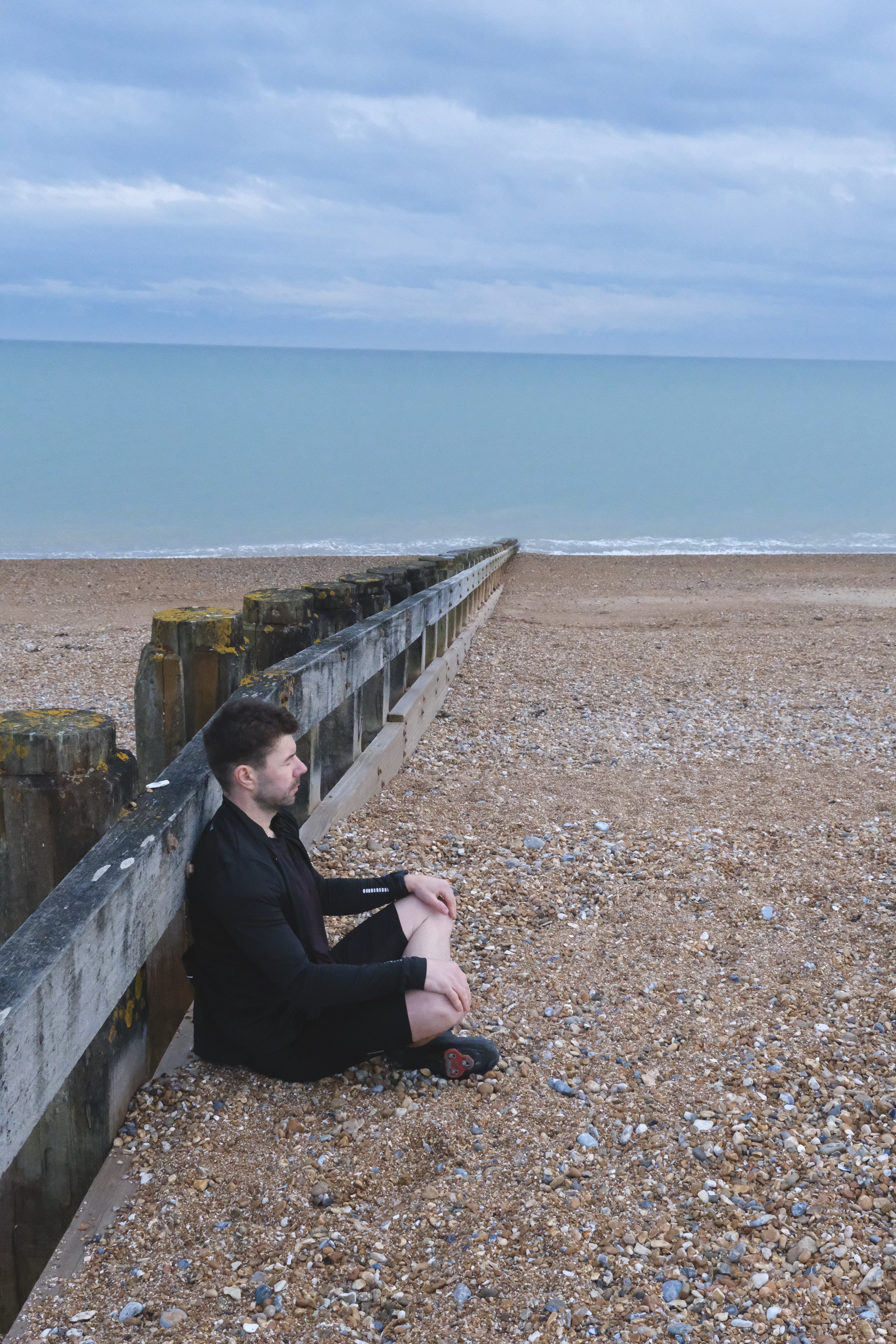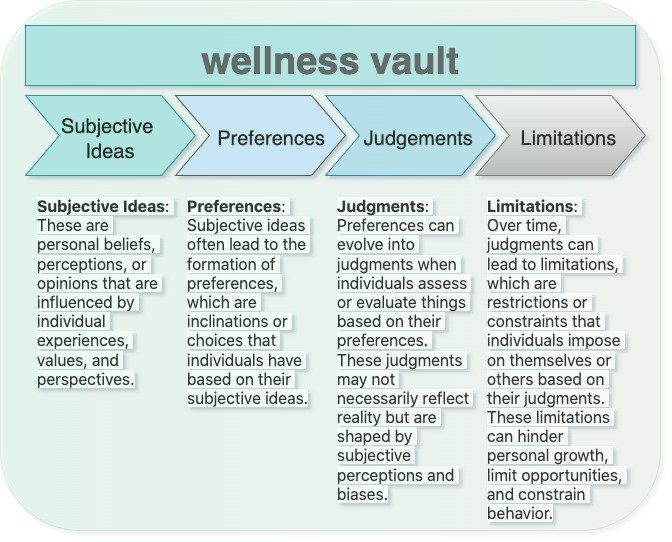The Impact of 4 Years of Mindfulness on Health, Happiness, and Productivity
Meditation is a practice that has been around for thousands of years, but it has gained popularity in recent times as a way to cope with the stress and challenges of modern life.
Mindfulness, lifestyle
The COVID lockdown hit me hard. I was drowning in work stress, stuck in a frontline care job I hated, surrounded by people who felt like strangers. Seven days a week of this was crushing my spirit, and I kept telling myself this was just my lot in life. Then I stumbled across something Joe Dispenza said that stopped me in my tracks: "Just sit down and do nothing for 5 minutes."
Those five minutes of quiet changed everything. For the first time in ages, I could hear myself think. No judgment, no pressure - just me and my thoughts. The fog started lifting, and I finally saw what was holding me back. It wasn't fate or bad luck. It was me.
Clearing the Fog
Sometimes, we feel stuck and unsure about what to do in life. Especially in this era of abundance, when possibilities are endless, and is always something to do. We've all been there - paralyzed by too many choices, too many shoulds and what-ifs. I needed a map, but first I needed to figure out where I wanted to go. Breaking down my big dreams into baby steps made them feel possible again.
How the Meditating Practice Started
Time is too precious to be wasted on anything that doesn't contribute to your growth and happiness.
wellness vault
My first attempt at meditation was nothing special - just me, sitting on my bed the next morning, trying to be still for 10 minutes. But something clicked. I kept coming back, day after day, trying different approaches. Some days I'd focus on my breath, others I'd repeat a phrase that meant something to me. Sometimes I'd picture a peaceful place, or just practice being kind to myself.
Read More: How Water-Based Mindfulness Enhances Mental Well-being
Finding My Groove with Meditation
The deeper I got into meditation, the more I experimented. I explored different techniques and settings to find what resonated best with me. It was weird at first - just sitting there doing nothing. But man, it did something to me. I tried everything.
I tried everything. Watching my thoughts float by like clouds. Sending good vibes to people (even the ones who drove me nuts). Making up peaceful scenes in my head. My favorite though? Repeating simple phrases that meant something to me. The more I practiced, the more real these mental pictures felt.
Meditation made me appreciate things more, be thankful, and kind to others. Most importantly, it showed me that love is life's essence and the source of everything.
The Surprise Perks
I didn't expect the physical changes. Better sleep came first - no more tossing and turning all night. Then I started craving healthier food and actually wanting to exercise. My constant headaches? Gone. Even my blood pressure chilled out.
The biggest shock was how it changed my brain. Before, my mind was like a hamster on a wheel, always labeling things, judging stuff, trying to make sense of everything. Now? I can just let things be. A cup of coffee is just a cup of coffee, not a whole morning ritual I have to get perfect. Life feels simpler when you're not trying to figure everything out all the time.
It's not magic - I still catch colds and get stressed sometimes. But meditation's like having a reset button for my body and mind. Pretty cool for something that's basically just sitting quietly.
Cyclical experience illustration: Graph illustrates the progression from subjective ideas to preferences, judgments, and self-imposed limitations. Contrasted with life's inherent simplicity—'IS', emphasizing human attribution of meaning to all aspects of existence.
Sequential Scenario Demonstration: The other night, I checked out this new restaurant everyone was raving about online. I walked in expecting some cozy little spot, but instead found myself in this sleek, buzzing space that felt more like downtown Soho than my usual hangouts. Not really my cup of tea, to be honest. Now I catch myself scrolling past similar modern restaurants when I'm looking for dinner spots. Funny how one experience can do that.
Looking back, I probably would've enjoyed it more if I hadn't built it up so much in my head beforehand. Sometimes the best nights out happen when you just go with the flow.
Read More: The Remarkable Impact of Exercise on Aging Hearts
Enhancing Emotional Well-being
Starting meditation changed everything for me. These days, I don't let little things get under my skin like they used to. Sure, I still get mad or worried sometimes - who doesn't? But now I have tools to handle those moments. The practice taught me to sit with uncomfortable feelings instead of fighting them. It's not magic - some days are still rough - but having this daily check-in with myself makes a world of difference. If you're on the fence about trying it, I'd say go for it. What's the worst that could happen?
Fostering Gratitude
Hiking trail, South Downs National Park, the western Weald, East Dean, West Sussex
I used to roll my eyes when people talked about 'connecting with nature.' Yeah, right. But something shifted after I started meditating. These days, I catch myself stopping to watch clouds drift by or smiling at a random dog in the park. It's weird how the smallest things can lift your mood when you actually slow down enough to notice them.
Sure, being grateful sounds simple enough - but it took me a while to get there. Between deadlines and endless to-do lists, who has time to smell the roses? Turns out, making time for it changes everything. Not in some dramatic way, but in those quiet moments when you realize life isn't so bad after all.
When I actually stop and pay attention, I start noticing all the good stuff around me. Meditation helped me see that.
Cultivating Self-Awareness
Looking back, I was pretty clueless about myself before meditation. I'd get annoyed at everyone else when things went wrong - classic blame game, you know? Starting to meditate was like turning on a light in a dark room. Not all at once, but bit by bit, I started seeing my own patterns more clearly. Some weren't pretty, but at least now I could work with them instead of pretending they weren't there.
It's not like I became some zen master overnight. But sitting with myself for a few minutes each day changed how I saw things. Made me a bit kinder to myself - and weirdly enough, to everyone else too.
Productivity Insights
Never thought meditation would help me get more done, but here we are. My brain used to feel like a browser with 50 tabs open - now it's more like... okay, maybe 10 tabs? Still not perfect, but I'll take it. The biggest surprise was how much better I got at figuring things out.
Problems that used to stump me for hours? Sometimes the answer just pops up while I'm taking a coffee break. Don't get me wrong - meditation isn't some magic productivity hack. But it's like upgrading your brain's operating system. Things just run a bit smoother.
The Impact of Meditation on Life
Exhibition view Stupor - Daniel Richter, Thaddaeus Ropac gallery, Mayfair London October 2023
I never thought sitting quietly for a few minutes each day would shake up my life this much. But here we are.
The biggest surprise? Finally seeing myself clearly. Not the version I pretended to be, but the real deal - messy parts and all. Who would've thought - all that meditation gave me the confidence to jump ship from design and dive into engineering. Scary? Yeah. Worth it? Absolutely.
Funny thing is, meditation sparked this creative streak I didn't know I had. Started painting after my morning sits just for fun, and suddenly I couldn't stop. One hobby led to another, and before I knew it, I was trying all sorts of new things.
Cutting-edge diagnostic solutions that empower individuals and healthcare professionals to make informed decisions about their health.
In Conclusion
Some days I still catch myself wondering if I'm doing it 'right.' But then I remember where I started - my mind racing like a caffeinated squirrel - and realize how far I've come. Now I can actually sit through a whole meeting without mentally redecorating the office (well, most of the time).
The weird part? I'm nicer to people. Not in that fake-sweet way, but genuinely caring about what's going on in their lives. Even started volunteering at an art gallery - something old me would've been too 'busy' for.
Look, meditation isn't some magic fix. It won't solve your problems or turn you into some enlightened guru overnight. But it's like putting on glasses when you didn't even realize you needed them. Suddenly, you see things differently. You handle stuff better. You stop getting in your own way so much.
I still have my moments - don't we all? But now I've got tools to deal with them. And that's made all the difference.
PSS. Do not be afraid of the darkness; It is only there to make the light shine brighter.
I hope you enjoyed this post on mindfulness and that it inspired you to try meditation or to continue your practice if you already do.
About the Author
Razvan Chiorean is a published author of Wellness Vault and a passionate advocate of sport performance and holistic fitness, bringing forth a wealth of knowledge and insight accumulated over more than a decade of dedicated involvement in the fitness space. He’s also an enthusiastic triathlete. Whether it’s swimming, cycling, or running, Razvan champions the idea that endurance and consistent movement is essential for overall health and a resilient mind-body connection. This philosophy not only supports physical and mental well-being but also empowers individuals to flourish in a world increasingly shaped by digital convenience.
***
Related Posts
Inspiration & Education
Balanced Digital Living
Connect with us on Instagram!
Some runs are for the body. Some runs are for the mind.
New Direction
Security
Application
Business
Web3.0
Science
Follow the Money
Culture
Recommended Books
Explore More









































